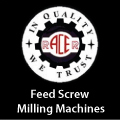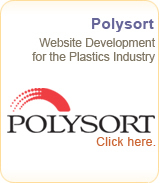
ENTEK Extruders
Contact: Rick Price
250 N. Hansard Ave.
PO BOX 39
Lebanon, OR 97355
U.S.
Phone: 541 259 1068
Fax: 541 259 8018
SCREWS & SHAFTS
ENTEK's extrusion experts provide you with the materials and the experience required to solve your screw wear problems.
ENTEK manufactures a full line of high quality screw components. Screws are available in Nitrided 135M, stainless steels, tool steels, special alloys, CPM® and a variety of bimetallic materials. We manufacture co-rotating and counter-rotating screws, as well as distributive and dispersive mixing elements. We can manufacture to OEM specifications, duplicate your existing screws,or assist you in designing custom screws to meet your requirements.
ENTEK offers a complete line of hard-faced screws and hard-facing services.
ENTEK can apply hard-facing to new or used screw elements. Hard-facing provides the longest lasting, most wear and corrosion-resistant screw element on the market, reducing downtime and increasing productivity.
Our new C-Series alloys provide you with the highest tungsten carbide content on the market. The majority of hard-facing materials are applied with our Plasma Transfer Arc, reducing costs and providing near-net-shape after overlay. Our CNC grinding capabilities consistently provide high quality components.
EXTRUDER BARRELS
ENTEK's experience in extremely high-wear resistant and wear-corrosion resistant materials places us well ahead of the competition.
ENTEK offers a complete line of standard and custom barrels in a wide range of sizes from a variety of materials. We also manufacture nitrided and a wide range of bimetallic barrels. Only 100% void-free metal materials are used in our bimetallic and super alloy liners. Our HIP lining process produces an insert free of seams or flaws - an advantage over welded or centrifugally cast liners.
Our new C-Series particle metal liners have the highest tungsten carbide content available on the market. In addition, the particle distribution at the wear surface is unmatched and provides the highest wear resistance available.
Our unique rebuilding process enables us to re-use your worn-out barrel as an outer sleeve. Reducing cost is only one of the many benefits of this process. Your old barrel takes on the benefits of its new super alloy liner, providing you with unequaled service life at a reasonable price.
Entek extrudes solutions for plastics
The Lebanon company employs 278 on its 14-acre campus
Photo: Entek employee Ron Wolfe works on a 133-millimeter extruder last week at the Entek Manufacturing plant in Lebanon. (David Patton / Albany Democrat-Herald)
By Finn John
STAFF WRITER
LEBANON The year was 1984, and Linn County entrepreneur Jim Young had a serious problem.
He had figured out a new, more efficient way to make battery separators, a vital component of car batteries, and hed set up a business called Entek Manufacturing with a big, high-output plant in Lebanon to supply GM Delco with all the parts theyd need.
Problem was, parts were wearing out fast on his production machines. Really fast. Like at a rate of one complete set a week.
Youngs new process involved mixing silica basically, finely ground sand into the plastic. The mixture of sand and hot plastic was acting like a lapping compound grinding the expensive tool-steel extruder screws down at a rate that flabbergasted the machines German manufacturer.
Those parts were thousands of dollars (each), said Kirk Hanawalt, vice president of worldwide sales for Entek. If they only last a week and you have to replace them, you wont last very long. Youll go out of business.
Something had to be done. Young got together with his team of engineers and told them they were going to figure out a better way.
They did. The solution Entek came up with would not only keep their battery separator production line humming along profitably but it also would forge a huge new profit center for the company and establish it as one of the worlds premier manufacturers of plastic extrusion machines.
Today, Entek is a discreet but huge presence on the city of Lebanons western flank, employing 278 people on its 14-acre campus and pumping out battery separators 24 hours a day, seven days a week.
The company is made up of three separate divisions. Theres the original firm, Entek Manufacturing, which today makes the plastic extrusion machines. It was created to design a better process for making battery separators, which Young hoped to sell to industry.
Instead, GM Delco told him it would gladly be his No. 1 customer if hed go into business manufacturing the separators himself, so he set up the second division, Entek International. Thats the biggest part of the company today, with a roster of 170 workers keeping the plant running around the clock, making separators using plastic extrusion machines built just across the parking lot.
The third division, Entek Membranes, came when the company started making Teklon brand separators for lithium batteries, the type used in computers and cameras.
Teklon is sold in Asia, primarily, said Hanawalt. Including China. Thats kind of a reversal of the usual trade situation.
Not bad for a company that, 20 years ago, was facing a huge problem that threatened its very existence.
An engineering solution
To understand the solution devised by Enteks engineers, you must understand the problem they faced. And to understand the problem, you must understand the machines: plastic extruders.
Heres how they work:
A plastic extruder is made of a powerful electric motor hooked to a pair of long, straight screws that turn inside a tube that runs dozens of feet, like the barrel of a gun. Plastic pellets and whatever you want to mix with them are poured in one end of the barrel.
The interlocking screws turn, and as they rotate, they force the ingredients down the barrel. At the same time, the barrel is heated to hundreds of degrees to melt the plastic, and special portions of the screw thoroughly mix the ingredients.
At the end of the barrel, the mixture is forced out under enormous pressure. There, it is either formed into some kind of continuous stock two-by-six deck boards, for example, or flat sheets or turned into pellets for further processing somewhere else.
The problem at Entek was they were extruding something with silica basically, sand in it.
Photo
Ordinary melted plastic is smooth, oily, and easy on the gears. Add silica to it and you have something completely different and much more destructive.
The screws and barrels in an extrusion machine are made to extremely close tolerances plus or minus 1/1,000th of an inch. So it took very little wear from the sandy plastic mixture before the multi-thousand-dollar parts were completely unusable.
The engineers experimented with coatings, hardening techniques and other ways to solve the problem. Eventually, they came up with a screw made of tough, wear-resistant-but-brittle powdered steel, fused together under high pressure around a core of soft tool steel.
The softer steel took the pressure of the powerful motors without cracking, and the powder steel took the abrasion of the gritty Entek battery-separator plastic.
The results are impressive. Parts that once wore out in a week are now lasting for six to nine months of round-the-clock operation.
Into the business
We really were just happy making our own parts at first, said Hanawalt. Then people started contacting us wanting to buy parts from us, so we were selling them parts. Finally, we realized we were making the screws already, and thats the hard part - were engineers, why dont we make an entire extruder?
So thats what they did. Entek made its debut as an extruder manufacturer at the 1998 K Fair plastics show in Germany the biggest plastics show in the world.
Weve been selling them worldwide ever since, said Hanawalt.
Since 1998, Hanawalt said, Entek has sold about 100 extruders. Last year, a rough year for any manufacturer of durable goods, they only sold 10, but theyre on track to move another 25 or so out the door this year.
Weve done machines for medical producers, we did one for a food producer and lots of different kinds of plastics, he said.
Entek machines are out there making all kinds of things: Composite wood-plastic decking, color concentrate pellets for other plastic manufacturers, and, of course, battery separators. But theyre not exactly high profile.
Most of our machines are out there making intermediate products that you never know where they come from, said Hanawalt. Theyre not direct to the consumer.




